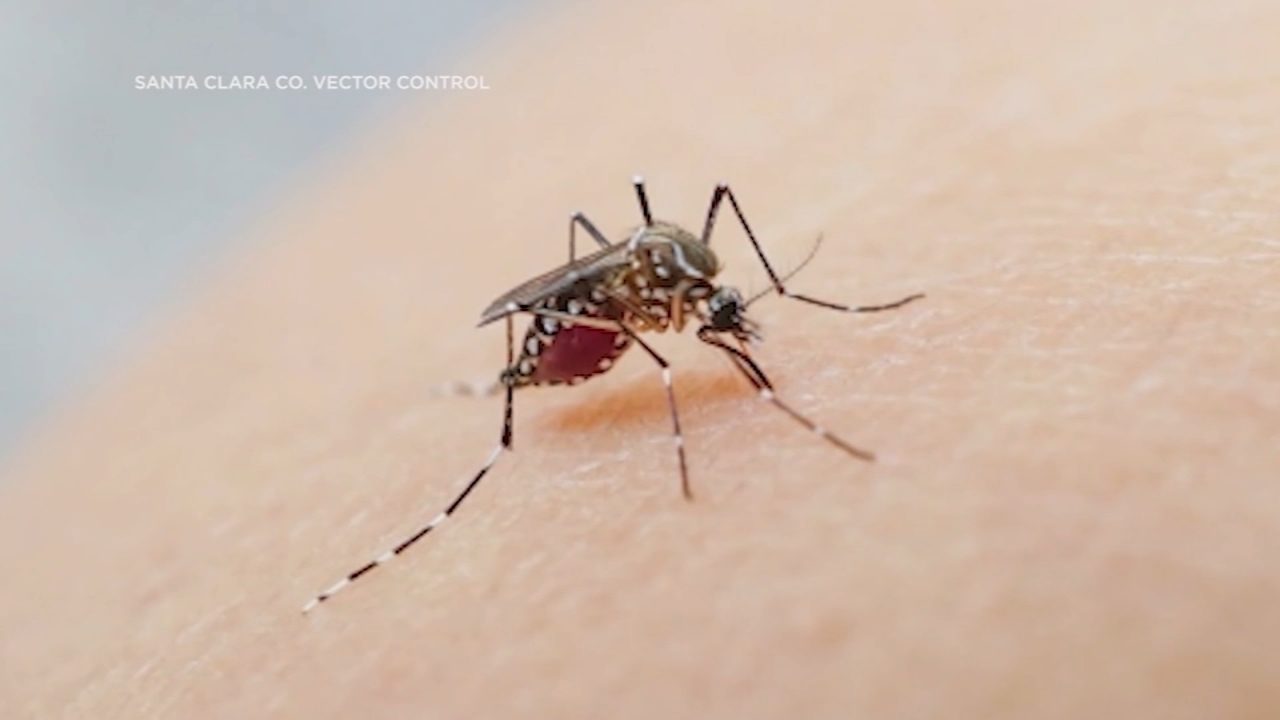Invasive day-biting mosquitoes discovered in Santa Clara Co.; officials detail potential dangers
Aedes aegyptis can bite several times and anytime, and can transmit diseases like Yellow Fever and Zika, according to Dr. Zahiri.

SAN JOSE, Calif. (KGO) -- A non-native pest new to Santa Clara County was recently detected at the San Jose and Milpitas border. Traps set by the county's Vector Control District uncovered two invasive day-biting mosquitoes on Thursday.
Now, an effort is underway to find out whether there are more in the area, and to figure out where they're coming from.
For the very first time, Aedes aegypti mosquitoes have landed in Santa Clara County. The mosquitoes measure a quarter-inch in diameter with distinct black and white markings on their back and legs.
Aedes aegypti can transmit diseases like Chikungunya, Dengue, Yellow Fever and Zika. The county says none of these diseases are currently found in California.
VIDEO: Are you a mosquito magnet? It could be your smell, new study finds

"They like to bite several times and they like to bite anytime," the county's Vector Control District manager, Dr. Nayer Zahiri told ABC7 News. "Especially day bites."
Day-biting, which according to Dr. Zahiri, is behavior different from the common mosquito.
Also setting apart Aedes aegypti, the county said the mosquitoes can lay eggs in spaces as small as a bottle cap and those eggs can survive for more than a year.
The county's Vector Control District said its surveillance program found two of these mosquitoes near the intersection of Dixon Landing Road and McCarthy Boulevard.
There aren't very many homes nearby, but there are commercial businesses. The county's Consumer and Environmental Protection Agency director Edgar Nolasco said these businesses can provide perfect conditions for the pests to thrive.
RELATED: Potentially deadly mosquito found in Contra Costa Co. for the first time
"A recycling center has thousands and thousands - used tires, milk cartons - all these little things that can hold bodies of water," Nolasco told ABC7 News. "That could potentially hold the eggs."
Nolasco said where winter weather would typically kill tropical and subtropical mosquitoes, Aedes aegypti eggs essentially hibernate. He said because of this behavior, the eggs can live on and hatch later.
While these mosquitoes aren't native to California, they have been detected in 20 counties including Santa Cruz and Contra Costa counties.
"We know for sure that they are not coming from those areas," Nolasco said. "Just because of the nature of the mosquito, it doesn't really fly too far from where it lays its eggs."
MORE: 1 billion people could be exposed to dengue, Zika as climate change intensifies: Study
A travel distance of 250 meters, or less than a fifth of a mile, said Nolasco.
For now, there's a push for the public to remove standing water, the county is expanding its surveillance and state sequencing is being done to find out where these mosquitoes are coming from.
"They can even let us know if that mosquito is comes from Central Valley, Southern California - which this mosquito is established in that area - or other places," Dr. Zahiri described.
For more information about what steps to take at home, click here.
For additional information about the invasive mosquito, click here.
If you're on the ABC7 News app, click here to watch live










